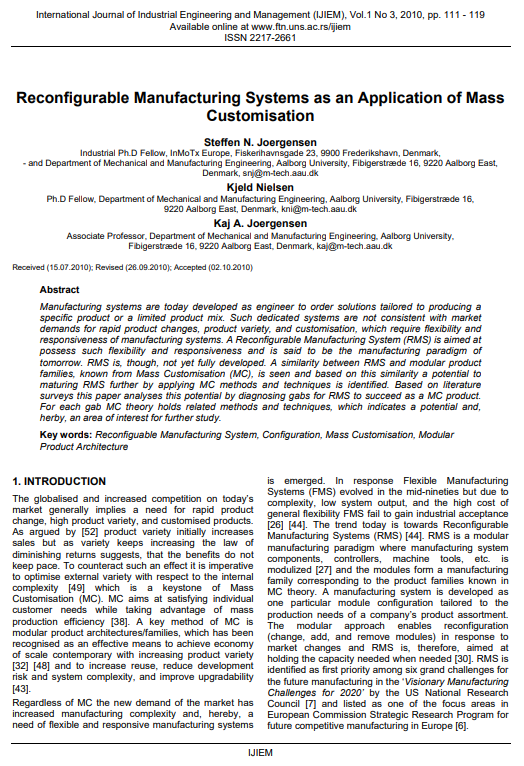Reconfigurable Manufacturing Systems as an Application of Mass Customisation

Published 2010-09-30
abstract views: 37 // FULL TEXT ARTICLE (PDF): 0
Keywords
- Reconfiguable Manufacturing System,
- Configuration,
- Mass Customisation,
- Modular Product Architecture
How to Cite
Copyright (c) 2023 International Journal of Industrial Engineering and Management

This work is licensed under a Creative Commons Attribution 4.0 International License.
Abstract
Manufacturing systems are today developed as engineer to order solutions tailored to producing a specific product or a limited product mix. Such dedicated systems are not consistent with market demands for rapid product changes, product variety, and customisation, which require flexibility and responsiveness of manufacturing systems. A Reconfigurable Manufacturing System (RMS) is aimed at possess such flexibility and responsiveness and is said to be the manufacturing paradigm of tomorrow. RMS is, though, not yet fully developed. A similarity between RMS and modular product families, known from Mass Customisation (MC), is seen and based on this similarity a potential to maturing RMS further by applying MC methods and techniques is identified. Based on literature surveys this paper analyses this potential by diagnosing gabs for RMS to succeed as a MC product. For each gab MC theory holds related methods and techniques, which indicates a potential and, herby, an area of interest for further study.
Article history: Received (15.07.2010); Revised (26.09.2010); Accepted (02.10.2010)

